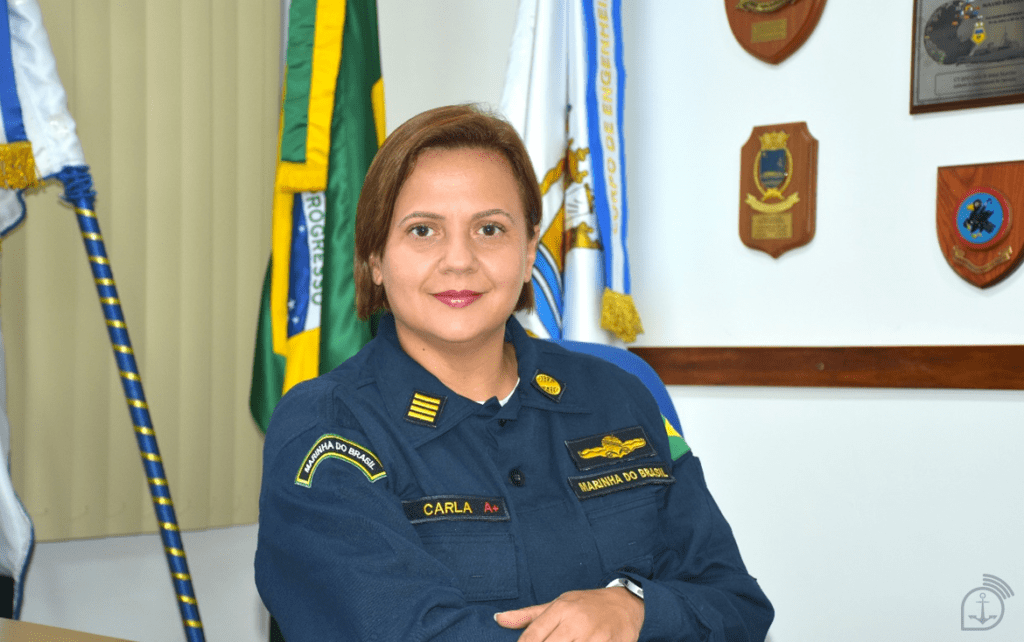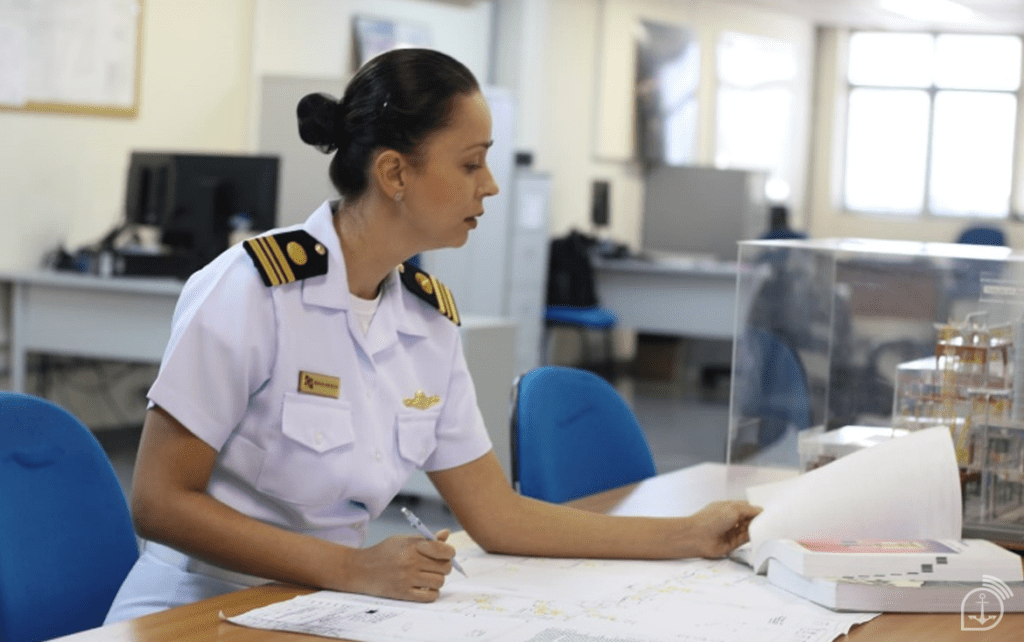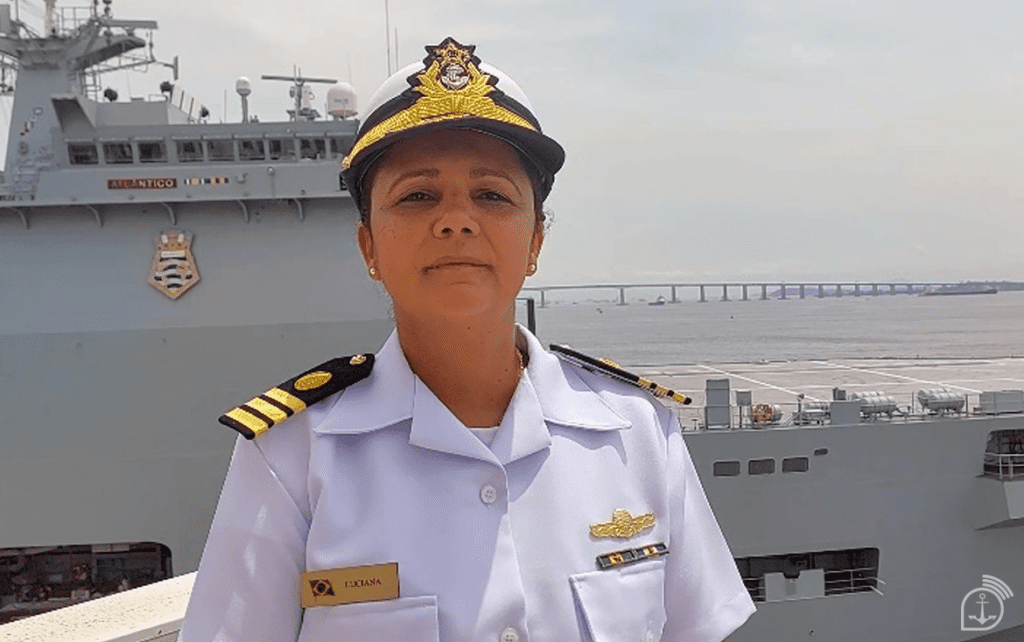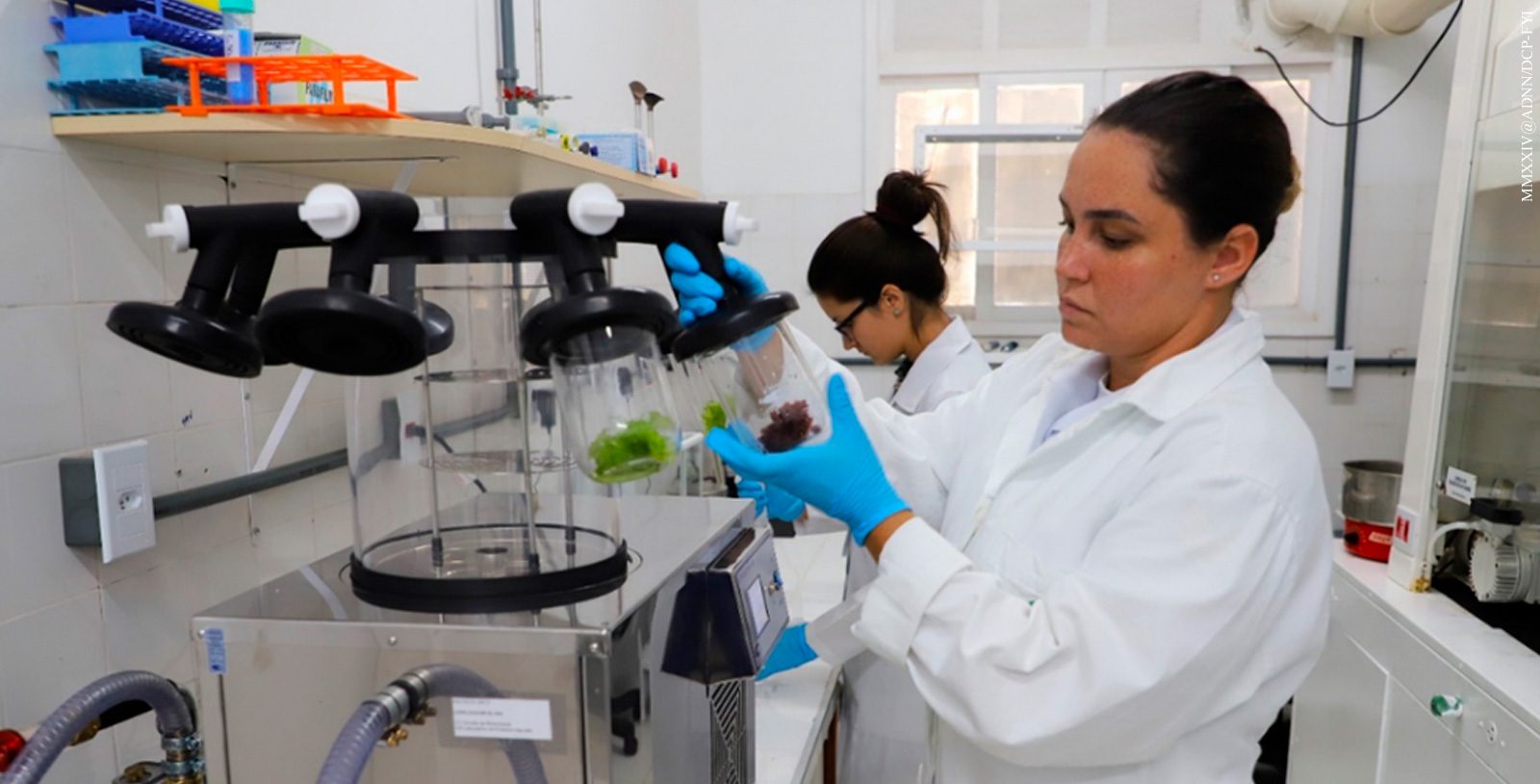Women’s participation in the sector highlights their contributions as researchers
Celebrated in February, the “International Day of Women and Girls in Science” was established in 2015 by a resolution of the United Nations (UN) General Assembly, with the aim of promoting the role of women in science and to promote full and equal access to science and participation in this area. According to the United Nations Educational, Scientific and Cultural Organization (UNESCO), women represent less than 30% of the world’s researchers, which shows how there are still barriers to increasing female representation, especially in areas such as science, technology, engineering and mathematics, which are fundamental to national economies. The average is global and affects countries regardless of their level of development.
The number of women in the defense sector has risen significantly in recent years and continues to grow. The Brazilian Navy (MB) has seen an increase in the number of women in senior positions, with emphasis on their work as researchers and their contributions to the development of projects and innovations in the scientific-technological sector.
Serving at the Instituto de Estudos do Mar Almirante Paulo Moreira (IEAPM), in Arraial do Cabo (RJ), Third Sergeant (Chemistry) Dayana Muniz Maia Montalvão is an example of these contributions. With a technical degree in Chemistry and a double degree in Chemistry and Pharmacy, she completed 10 years of service in the Navy in 2023, the year she was approved in first place for the Master’s course of the Associated Postgraduate Program in Marine Biotechnology, offered by IEAPM with the Fluminense Federal University. “IEAPM was the big door that led me to research. I had thought about doing a master’s degree at other times, but it wasn’t possible to combine them. Here, because I work directly with research, I was able to take part in the selection process and came first, which motivated me even more to follow this path,” she says.
As well as being a master’s student, Third Sergeant Dayana is also involved in important projects at the Institute. “Getting to know this other side of the Navy was essential. Understanding the importance of the activities carried out in the area of science and technology and being able to collaborate in some way has been very rewarding (…) the studies can be of great value in discovering new compounds. Our projects in the area of marine biotechnology can generate benefits for society as a whole,” she says. According to her, the encouragement she has received from other women, since her first day at the Institute, to develop research and learn new activities should be highlighted. “They all inspire me individually, because they love doing research and because they manage to combine it with military life in an excellent way, showing everyone that it is possible,” she says.
From Maintenance to Management
With a degree in Electrical Engineering, with an emphasis on Electronic Systems, from the State University of Rio de Janeiro and a Master’s in Electronic and Computer Engineering from the Technological Institute of Aeronautics (ITA), Sea and War Captain and Naval Engineer (EN) Carla de Sousa Martins joined the Navy in 1998. “I joined the Navy with research in mind,” she recalls.
“At that time, there was a mandatory boarding requirement for the Corps of Engineers, but in 1999 there were still some restrictions on women boarding ships. After three months in the Engineering Directorate, I was transferred to the Naval Base in Rio de Janeiro to do a year’s work in maintenance,” she says. After this period, the now Commandant worked in the area of naval communications at the then Directorate of Telecommunications of the Navy and, in 2003, she was part of the XVII Instruction Voyage of Marine Guards aboard the School Ship “Brasil”. In 2004, he joined the team at the Navy Research Institute (IPqM) for the first time. “At the time, I embarked a lot on the Jaceguai Corvette and frigates to carry out sea trials, as well as always studying and doing other project activities,” he said. “In 2007, I went to do my Master’s at ITA and stayed there for two years. Having the opportunity to study in the place of my dreams, in a Master’s program, was the perfect combination of two worlds – research and the military.”
After years of dedication, the great personal achievement she gained as Research and Development Project Manager and a stint with the Brazilian Naval Commission in Europe, Sea and War Captain Carla was surprised to be appointed to the head of the Institute where she worked for so many years, a position she has held since January 2023, being the first woman to head the Organization since it was founded in 1959. “I don’t even need to mention how pleased I was. For me, it was more than the realization of a dream. In the past, the IPqM was headed by an Admiral, so I couldn’t have dreamed of it,” she reveals. “Running a research institute is, for me, the pinnacle of my professional fulfillment in the Navy. Being in daily contact with outstanding, highly competent engineers and researchers, and being able to contribute (albeit in a managerial capacity) to the projects that are used in our Navy is really a great satisfaction,” she concludes.



Women in Strategic Programs
Female participation in the Navy’s Science, Technology and Innovation (ST&I) areas is not exclusive to the Research Institutes. Many of them are directly involved in the Navy’s Strategic Programs. The Submarine Development Program (PROSUB), for example, has several women on its staff, whether they are military personnel, civil servants or even employees of the companies involved.
This is the case of Frigate Captain Luciana Veríssimo da Silva Duarte. After joining the Naval Force in 2005, she embarked at the Navy Arsenal in Rio de Janeiro, where she worked in the Structural Workshops Division and was responsible, in a field job, for supervising structural repair work on ships undergoing maintenance. “The Navy has always been at the forefront of including women in its various Corps and Staff. As a woman and an engineer, I had the opportunity to enter a mostly male area, which is gradually integrating other women. I think I was one of the first people in charge, if not the first, of the workshops I worked in,” she says, adding that the experience enabled her to be selected for a Strategic Defense Program. “In 2010, I was selected for this job and went to France to carry out one of the first technology transfer trainings for the construction of submarines. Being part of this is a source of great pride, as it is a highly complex program that generates jobs and technological development for our country.”
According to Frigate Captain Luciana, the group that took the French course included other women engineers, technicians and welders. “Over time, other women have also been trained in technical areas, which, in my view, demonstrates the Navy’s interest in integrating women’s work into its various tasks,” she says.
Considering the state of São Paulo alone, in line with the growth in the participation of women in the areas of technology and defense, the Navy has teams of more than 200 women, both military and civilian, in the Navy’s General Directorate for Nuclear and Technological Development and the Navy Technology Center in São Paulo (CTMSP), where they carry out their work. The CTMSP, together with its subordinate Military Organizations, is responsible for coordinating the Navy’s Nuclear Program, enabling the country to master the technological, industrial and operational processes of nuclear installations applicable to naval propulsion. The program is being developed with the aim of mastering nuclear fuel production technology, as well as developing and building a nuclear power generation plant.
It is with this directive that the Navy’s Nuclear Development Directorate employs Corvette Captain (Naval Engineer) Renata Suellen Alves Krusche. A chemical engineer in the Naval Force since 2010, she was in charge of the Technical Division of the Navy Fuel Depot in Rio de Janeiro, where she worked as head of the fuel analysis laboratory. In São Paulo since 2015, “I was the manager of important projects in the nuclear area, always aiming for faithful compliance with national and international regulatory requirements,” she says.
“Being a woman in a Strategic Defense Program is a great opportunity to contribute different skills and perspectives in a mostly male environment. Bringing diversity to this environment is also motivating, as I know I can inspire other women to become leaders and innovators, break down barriers and build increasingly inclusive and egalitarian paths in all segments, especially science and technology,” she says.
Agência Marinha de Notícias *** Translated by DEFCONPres FYI Team ***
